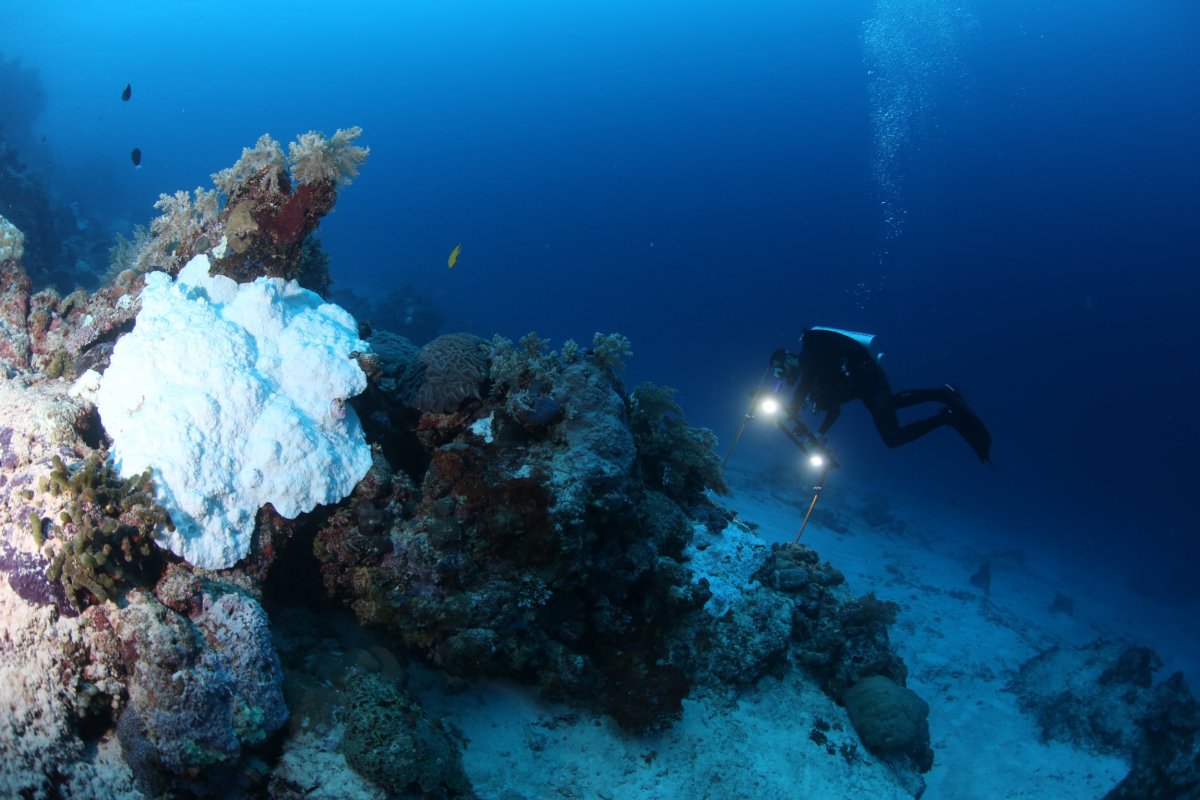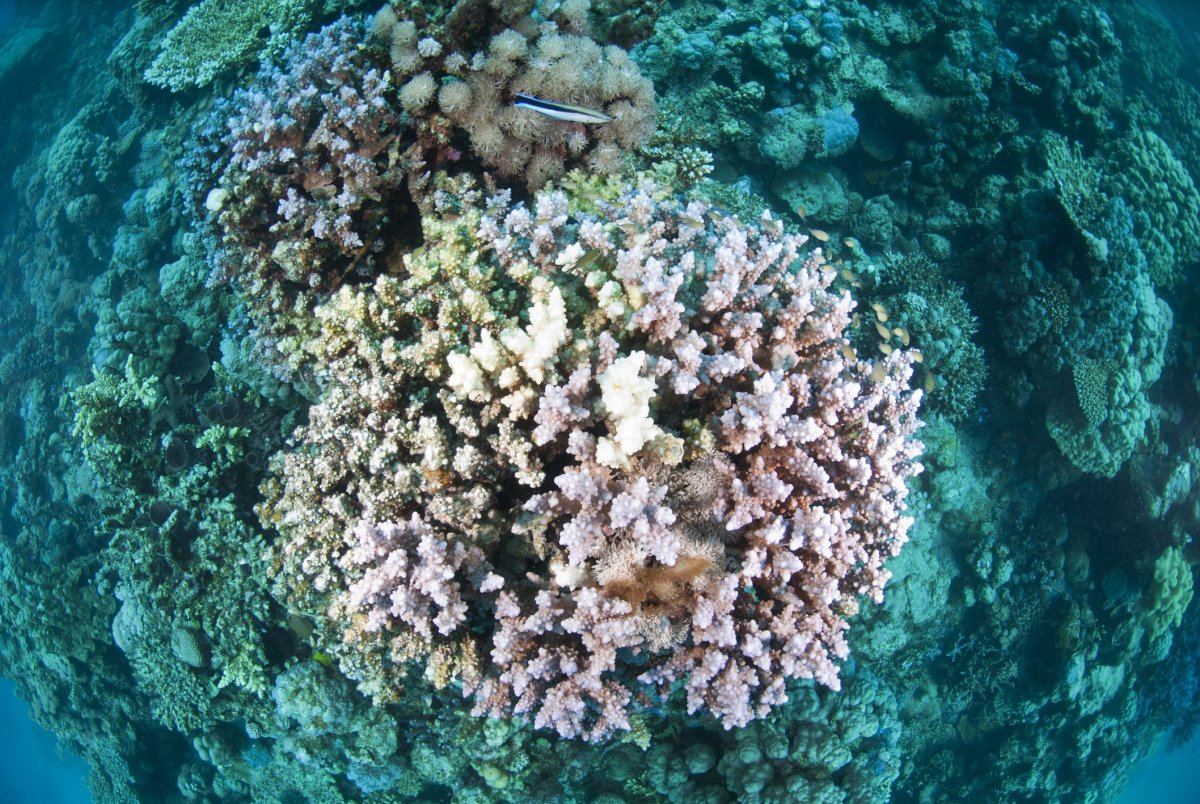Coral reefs provide a living home to an incredible array of wildlife. Fish, turtles and even dugongs swim among the spectacular alien-like structures. But warming seas, pollution, acidic waters and other dangers are devastating these ecosystems. In 2016, a heatwave killed almost a third of Australia's iconic Great Barrier Reef. Researchers have long suspected that reefs hiding deep underwater might provide a cooler refuge for certain coral species.
But these deep regions didn't escape 2016's mass bleaching event, a study has shown. Although they suffered less damage than reefs closer to the surface, researchers writing in the journal Nature Communications think both shallow and deep reefs are threatened by these events.
Although corals can rebound from bleaching, this state of disease can also lead to permanent death. Warm waters make corals expel the special colored microalgae that live in their tissue and provide them with nutrients. As this algae disappears, corals turn a skeletal white.
"Worse than getting this odd new look, the coral has now lost its main source of food," study author Pedro Frade, a coral microbial ecologist, at the University of Algarve, in Faro, Portugal, explained to Newsweek. "If the high seawater temperature does not subside, the coral literally starves to death."
Frade and colleagues probed coral some 130 feet below the surface—much deeper than scientists normally look. Of the coral they surveyed, about 40 percent at this depth was bleached in the wake of 2016's bleaching event, and some 6 percent had perished. The damage was much more severe at shallower depths. At 15 to 80 feet deep, up to 69 percent of coral was bleached and eight to 12 percent had died.
"Our study confirmed the severe impacts the bleaching had on the shallows in the northern Great Barrier Reef," Frade said. "But we added a completely new piece of information by extending the surveys to the deep reef."
The research shows that deep water reefs may offer some thermal protection. But "this is likely only for certain restricted communities," Nicholas Kamenos, an associate professor with the University of Glasgow, in Scotland, told Newsweek. Upwelling of cold water appeared to provide deep coral some protection, but this was transient and appeared to cease by the end of the summer.
"The deep reef," Frade added, "probably deserves its own management and research initiatives."

Beyond Australia, coral reefs around the world are threatened by rising sea temperatures, Kamenos said. From 2014 to 2017, the Earth saw a global bleaching event affecting the Atlantic, Pacific and Indian oceans, he said. "Mass bleaching was observed across the Caribbean, Florida and Hawaii."
Frade fears the impact of a warming planet on reefs beyond Australia may be even more severe. Many other reefs around the world simply don't have the same level of protection offered by local authorities as the Great Barrier Reef, he said. Beyond their beauty, reefs are a key part of the global economy. They provide jobs in tourism, nurseries for fish and even the ingredients for certain medicines.
"Saving coral reefs needs a concerted effort from the global community as the major threat to reefs—global ocean warming—can only be dealt with at the planetary scale," Frade said. By pressuring politicians to choose policies that protect the planet, and by making simple lifestyle changes to reduce one's carbon footprint, individuals can help minimize further damage to the planet, he said.

"The survival of our species on this planet has a deadline. The question is not if humans will one day vanish from this planet, it is rather when this will happen." Just imagine, Frade added, how future generations will feel when they realize humans today have not done enough to preserve a healthy Earth. "In my opinion, losing coral reefs will bring humanity one step closer to extinction on this planet."
Uncommon Knowledge
Newsweek is committed to challenging conventional wisdom and finding connections in the search for common ground.
Newsweek is committed to challenging conventional wisdom and finding connections in the search for common ground.
About the writer
Katherine Hignett is a reporter based in London. She currently covers current affairs, health and science. Prior to joining Newsweek ... Read more
To read how Newsweek uses AI as a newsroom tool, Click here.








